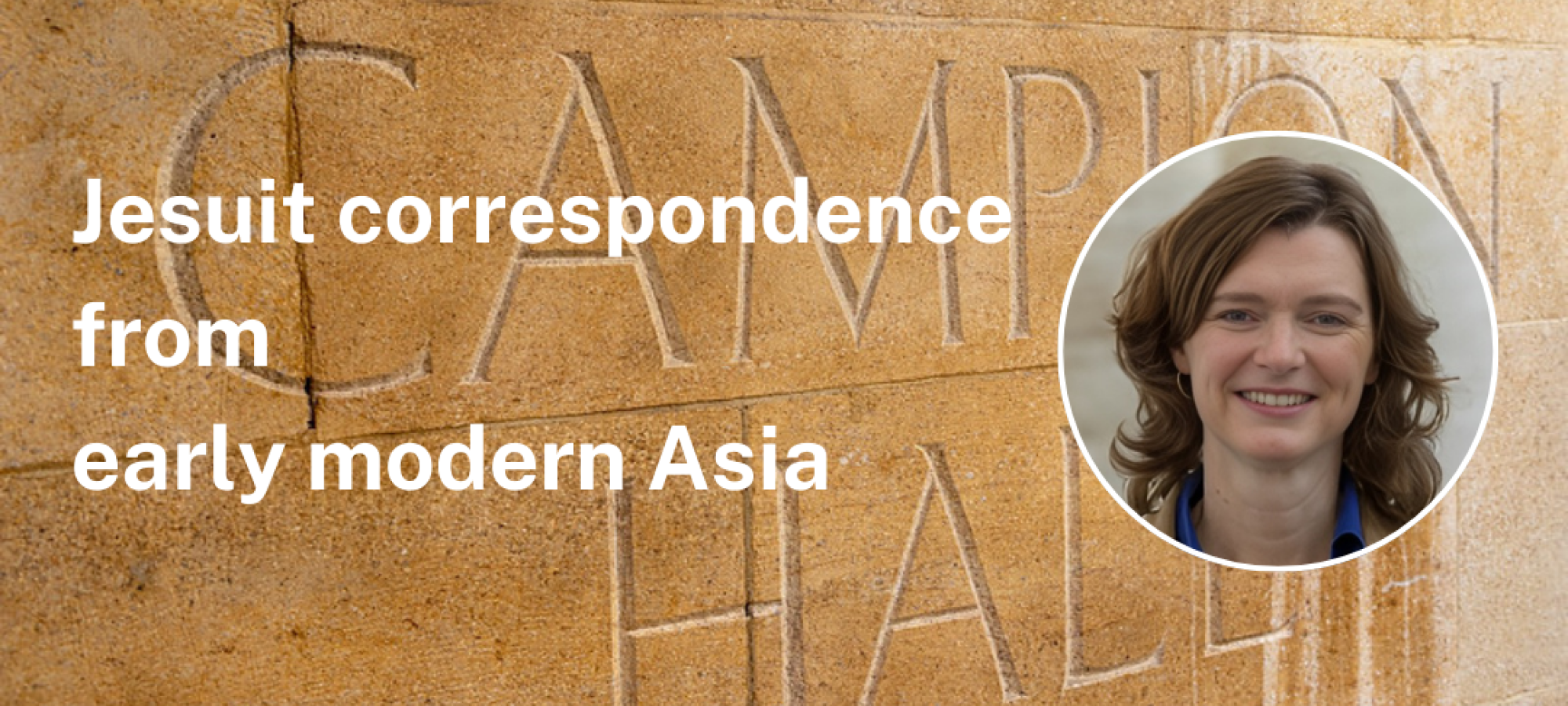
Campion Lecture (Michaelmas Term) 2024
This year's Campion Lecture took place on Thursday 24th October 2024 with Dr Camilla Russell.
Dr Camilla Russell is Publications Editor, with IHSI (Institutum Historicum Societatis Iesu), located at the Roman Jesuit Archive (ARSI). Trained in Melbourne, Pisa, and London (with a PhD from Royal Holloway, 2003), in 2008/09 she was Fellow at Villa I Tatti the Harvard University Center for Italian Renaissance Studies. Originally from Australia, Dr Russell holds affiliations with Australian Catholic University, where she teaches at the university’s Rome campus, and Newcastle University (where, before moving to Rome, she was Lecturer in Early Modern European History 2009-2015). Her research focuses on the cultural and religious history of Renaissance Italy, the early modern world, Jesuit history, and women’s history. Among her publications are the monographs, Giulia Gonzaga and the Religious Controversies of Sixteenth-Century Italy (Brepols, 2006) and Being a Jesuit in Renaissance Italy: Biographical Writing in the Early Global Age (Harvard University Press, 2022).
Jesuit correspondence from early modern Asia
Jesuits in the early modern period undertook missionary work in Asia under the patronage of the Portuguese crown, operating within the sphere of its overseas empire. However, several Jesuit missions were in territories outside Portuguese jurisdiction; in such cases, Jesuits lived and worked as guests of local rulers and their populations. The preferred Jesuit approach to working in these contexts, known as accommodatio—or the practice of adaptation to local cultural forms and social practices underpinned by the aim for converting populations to the Catholic faith—generated a large body of sources that provide information about the Jesuit experience as well as numerous accounts about their host societies and the interactions that took place with them.
In this lecture, Dr Camilla Russell drew on the correspondence sent back to Rome by Jesuit missionaries in these territories. Through a series of case studies, she traced examples of Jesuits being shaped by local life, of host societies accommodating their guests, and how the method of Jesuit accommodatio in these contexts—despite being filtered mainly through the Jesuit gaze and record-keeping practices—reveals a rich vein of multi-directional exchange that warrants scholarly attention for exploring early-modern worlds.
View the livestreamed video
The livestream video of the lecture is available here.

